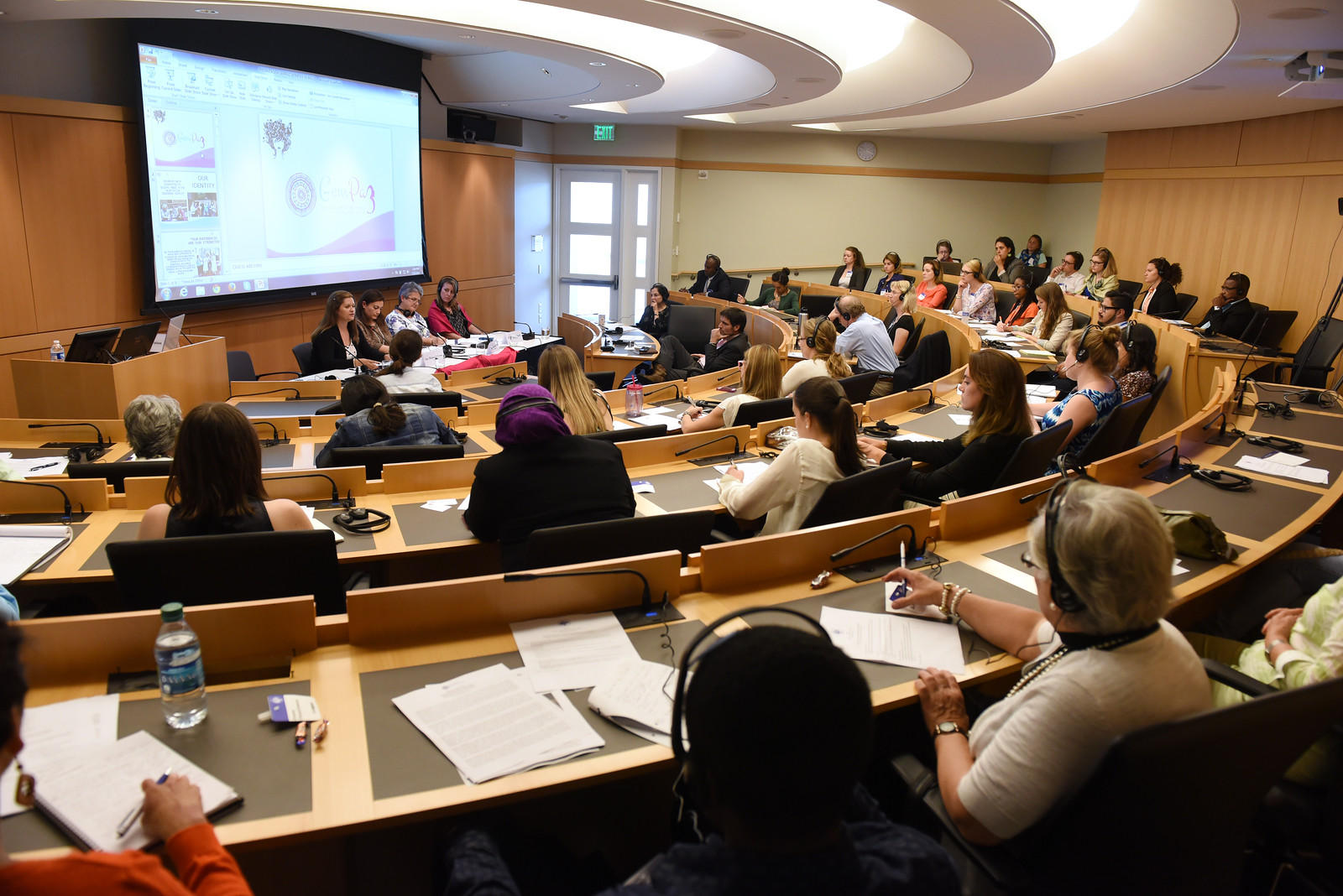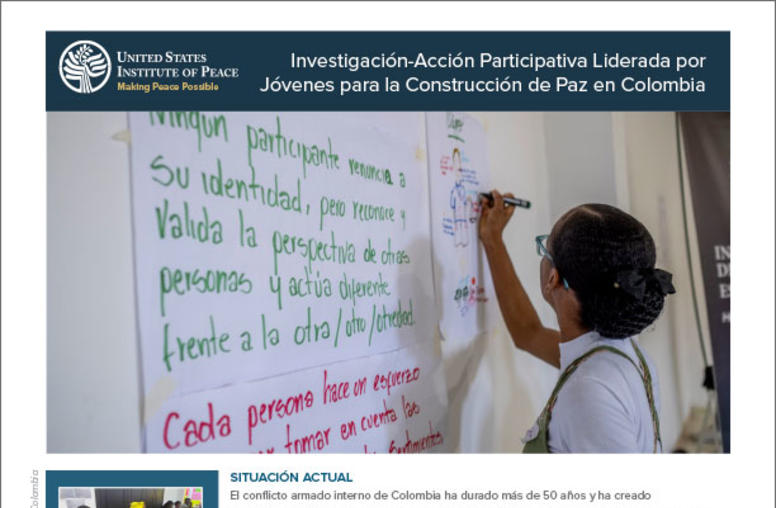Women Working Towards Reconciliation
Colombia Peace Forum
Read the Event CoveragePublic support in Colombia for the peace process between the government and FARC rebels has dropped to an all-time low and opinion is increasingly favoring military action over dialogue. In early July, a group of 26 religious leaders of different faiths called on the negotiators to accelerate peace talks and offered to help lead the country toward reconciliation. On July 15, the U.S. Institute of Peace held a discussion with a group pursuing such work, the Ecumenical Group of Women Peacekeepers (GemPaz).

The Colombian government and FARC delegates in Havana are working to craft a peace agreement that will address the rights of more than 7.4 million registered victims of the decades-long conflict to truth, justice, reparations, and guarantees that violations won’t be repeated.
Within faith communities, women such as the members of GemPaz have been actively working with victims’ groups and demobilized populations to stop the cycles of vengeance and legacies of hatred and bring healing to the country. Established in 2008 with the support of USIP, GemPaz began as a collaboration between Catholic and Evangelical Protestant women and has grown into an ecumenical project for peace, social justice, human rights, and social transformation. GemPaz seeks to create conditions for reconciliation in Colombia through a variety of mechanisms, including transitional and restorative justice and psycho-social healing.
The event, part of the Institute’s ongoing Colombia Peace Forum series, was conducted and webcast in Spanish. Simultaneous English translation was available on site. Continue the conversation on Twitter with #ColombiaPeaceForum.
Speakers
- Virginia M. Bouvier, Moderator
Senior Advisor for Latin America Programs, USIP - Mónica Velásquez
Project Coordinator, GemPaz - Norma Inés Bernal
Steering Committee, GemPaz - Mónica Guerrero
Steering Committee, GemPaz
Commentary:
- Kathleen Kuehnast
Director, Gender and Peacebuilding, USIP - Susan Hayward
Director, Religion and Peacebuilding, USIP - James Patton
Executive Vice President, International Center for Religion and Diplomacy (ICRD) - Lili Cole
Senior Program Officer, Center for Applied Research on Conflict, USIP


